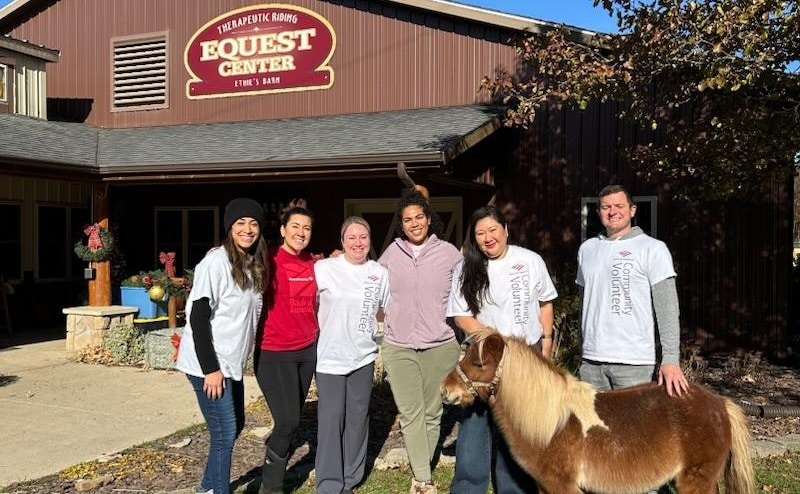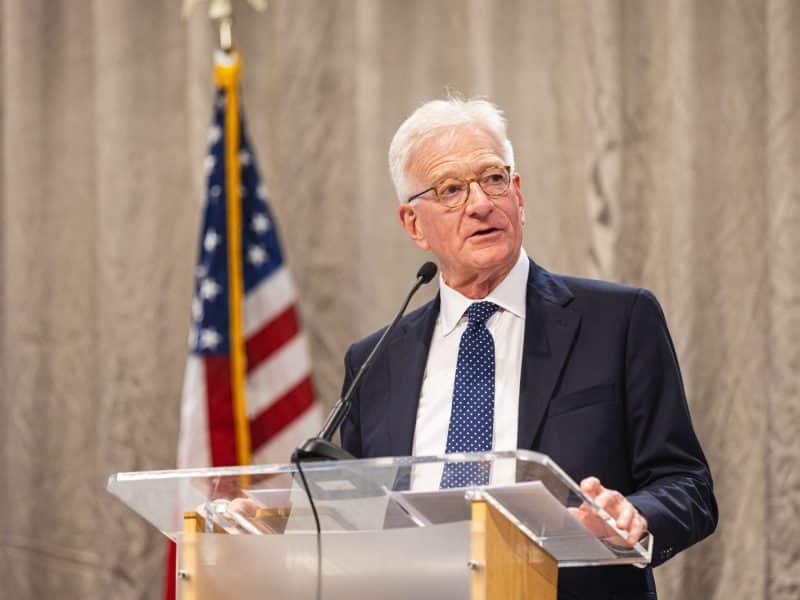RapidChat: John Helmholdt of Grand Rapids Public Schools
For much of recent history, the public education system has gone relatively unchanged. John Helmholdt, Executive Director of Communications and External Affairs at Grand Rapids Public Schools, explains why this is such a big deal for the city's education system, as well as why, nationwide, this has lead an increasing number of schools to take on much more innovative approaches.

For much of recent history, the public education system has gone relatively unchanged. John Helmholdt, Executive Director of Communications and External Affairs at Grand Rapids Public Schools, explains why this is such a big deal for the city's education system, as well as why, nationwide, this has lead an increasing number of schools to take on much more innovative approaches.
Rapid Growth: Just recently the Grand Rapids Public Museum School won $10 million from the XQ Super School Project. Is that something you had to apply for?
John Helmholdt: Yes. We were one of 700 applicants nationwide, and one of 10 winners.
RG: The idea behind XQ’s Super School Project is that “America needs a new way of learning.” What are your thoughts on that notion?
JH: What it goes back to, by and large, is that our public education system has gone relatively unchanged for hundreds of years. The typical day has always been 30 kids neatly lined up rows, in a classroom shaped like a box, with the teacher at the head of the class. Then after their day at school, everyone goes back home to work on the family farm. That style of education is still primarily dominated, but it doesn’t align with how we know students learn today. It’s not consistent with what we know about effective teaching, and we want to be able to reinvent how we provide education to high school students today.
RG: You have the Public Museum School, Zoo School, and Blandford School. Are there any other plans for “place-based learning” within the GRPS school district?
JH: The overview of the museum school is what makes it unique. It is the best of design thinking principals and place-based education. It’s a new instructional model that takes advantage of all the resources of the museum and the greater downtown area. The students aren’t just sitting in a line reading textbooks; they are out and about in downtown Grand Rapids. They may go to the museum, they may go down to the river and study the riverside — or even the city archives. They can see the artifacts that aren’t on display in the museum.
RG: Are there any future plans for more innovative schools, such as the given?
JH: How, when, and where is the thing we are still considering. The Southwest Community Campus (a Spanish/English immersion school) is where we are thinking about. Due to the remarkable growth, we’re looking to expand it. But how do we enhance the model? How do we bring in some wraparound services to create an innovative school experience? These are the things we need to figure out. Already, we have $20 million set aside to rebuilt the new Southwest high school. Our goal is to develop it with stakeholders in the area and help transform it. We’re building off an already successful model, but when we partner, we are able to take advantage of the resources and knowledge of our external partners.
RG: How does GRPS help facilitate community engagement within the schools?
JH: One of the reasons why the GRPS Transformation Plan has been so successful is because we have remarkable public/private partnerships that revolve around the students. We are always looking to bring in partners to support our students and teachers. For example, Martin Luther King, Jr. Academy is a neighborhood school and First United Methodist Church has adopted it… and so forth. Every single school has various partners from within the community. Whether it’s a church, local business, or a local community stakeholder. It varies school to school.
RG: Are there any plans for collaboration between GRPS and any of the other top 10 schools?
JH: That is part of the XQ plan. Our total team is 54 members, and only five were selected to go to [Washington] D.C. Those individuals spent the entire week with those other teams. And from what we can understand, the intent is for those teams to collaborate and share those best practices. We have learned along the way, and from the experience, is that we are pretty far ahead of the curve and that the XQ team is blown away from us. They tell us, “You are on the ball. It wasn’t until I came here that I understood what XQ meant.” They were blown away by the level of collaboration. I think that speaks to GR, and that is our strong suit.
RG: Will the Museum School continue to grow with one class per year, or has that timeline condensed with the unexpected supplementary funding the school received through the contest?
JH: Great question. It will still continue to grow one grade per year. Next year we’re adding eighth grade. That will fill the three grades at the Van Andel Museum Center. We have hired planners for 54 Jefferson plans, which will ultimately house grades nine through 12, but we need time to get the doors open for that first ninth grade class.
RG: There has been an Upworthy article going around about replacing student detention with meditation. Do you see this as an effective way to reprimand these young learners?
JH: This is not something I can confidently comment on. Though what we have done at GRPS is called restorative justice and practice. This is largely where you have students that are given an option. Whether they are up for a detention, suspension or expulsion, they have the option to go through a restorative process, which is ultimately a mediation. This could be between two students, a teacher and a student, and so forth. So instead of putting them out for 10 days, we bring in a mediator that helps facilitate a conversation between the two individuals alone. This is one reason why our suspension rates are down, as well as expulsion; our culture is improved from this. Restorative justice has built relationships between students and teachers, and just improved our overall school culture.
Jenna Morton is the RapidChat correspondent for Rapid Growth Media.









